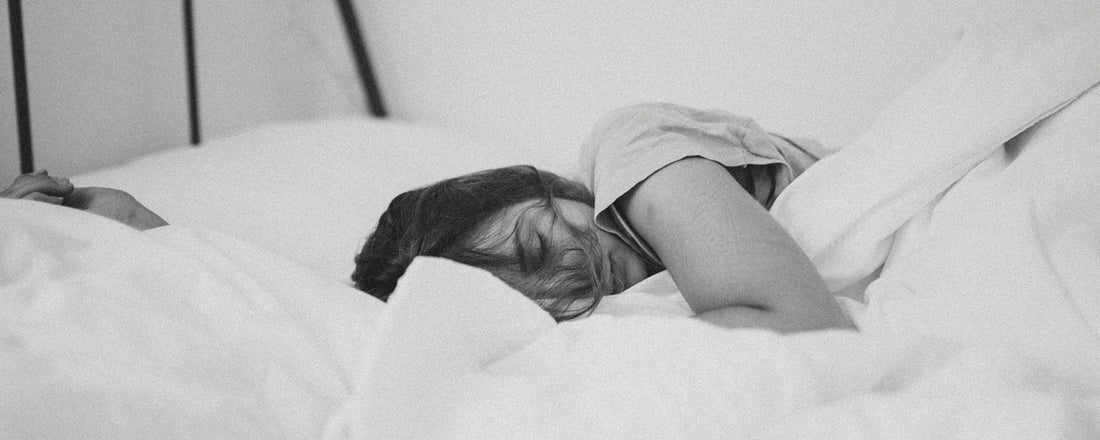
Is Coffee Before Bed a Bad Idea?
LifestyleCan Caffeine Keep You Awake?
Caffeine—the elixir of life—is what keeps us fueled and motivated all day long. It’s no surprise that caffeine is the most used natural stimulant in the world. In fact, more than 85% of Americans have at least one caffeinated drink a day. We reach for that reliable cup of joe in the morning, afternoon and even at night to help us feel alert and focused.
Caffeine provides a boost of energy since it stimulates the central nervous system. While caffeine can boost cognitive function and has numerous health benefits, it may not be the solution for a restful night of sleep. Of course, with everything, caffeine affects individuals differently. While it may benefit someone who feels groggy and tired, it may cause overarousal and lead to anxiety and restlessness in someone who is naturally alert.
Is Caffeine Linked to Insomnia?
Caffeine in moderation has long-term health benefits and short-term performance benefits. It can help with your mood, memory, heart health and longevity. In the short-term, caffeine gets you up and moving with endurance-boosting benefits, allowing you to exercise longer.
Consuming caffeine to stay awake may lead to sleeplessness, anxiety and interrupted sleep, depending on the person. Unlike coffee and tea, consuming caffeinated soda has been linked to increased severity of sleep-disordered breathing. So, if you’re going to caffeinate, make sure you’re reaching for a natural source of caffeine, like organic coffee.
Some people are able to fall asleep after drinking a late-night coffee, while others may not get the best quality of sleep after drinking coffee too late in the day. So, is coffee before bed a bad idea? Honestly, it depends on your own personal circadian rhythm.
What are the Effects of Caffeine and Sleep?
There are tons of studies on the effects of caffeine before sleep. One study in particular focused on caffeine consumption 6 hours, three hours and mere minutes before going to sleep. Researchers also measured sleep time and sleep efficiency. They found that caffeine consumed at these times had a huge impact on sleep—not only when just trying to fall asleep but also the overall quality of sleep.
Another study found that drinking a double espresso three hours before bed delayed the production of melatonin in your brain, which is responsible for helping you fall asleep.
Researchers are also looking at individual sleep patterns—after all, no two sleep patterns are the same. They found that caffeine intake at night had worse impacts for people who get up early than for people to tend to sleep in.
Caffeine intake has also been linked to insomnia, which results in trouble falling and staying asleep. If you consume more than the suggested amount of caffeine a day (about three 8-ounce cups a day), you may experience symptoms of insomnia.
Why are Some People Able to Sleep After Coffee?
Not everyone reacts to caffeine in the same way. As odd as it sounds, some people may actually feel tired or experience a caffeine crash after one cup, and there’s a scientific reason for that.
Adenosine, a neurotransmitter that causes fatigue when you aren't receiving enough in your brain, makes you sleepy when caffeine wears off. Caffeine blocks adenosine receptors in your brain, so once the caffeine wears off, you'll have a buildup of it and may feel sleepy.
The Conclusion? Test What Works for You
No two people respond to caffeine the same way—some are more sensitive to it than others. If you’re a regular coffee drinker, you may have built up a tolerance and feel less sensitive to the effects of caffeine. Others may be more sensitive to caffeine's stimulant effects, resulting in coffee jitters or an inability to fall asleep and stay asleep.
Based on research, ingesting caffeine during the day is a bad idea if you already have trouble falling asleep. So, if you think coffee is affecting your sleep, try out a few methods to see what helps. A few tips include:
-
Drink no more than 400 milligrams of caffeine a day.
-
Stop drinking coffee after 2 p.m.
-
Try drinking coffee at a different time of the day.
-
If you need an afternoon pick-me-up, experiment with brew ratios to make your coffee less strong or drink tea.
But if you're a big coffee drinker, also be careful of the effects of caffeine withdrawal—ironically, cutting down significantly on caffeine can also cause sleep issues.
My advice? The next time you're tired, drink coffee and then take a nap. Seriously, it'll help.
[Featured Image Credit: Kinga Cichewicz via Unsplash]
RELATED: Sleepy After Coffee? Here’s the Fix.
